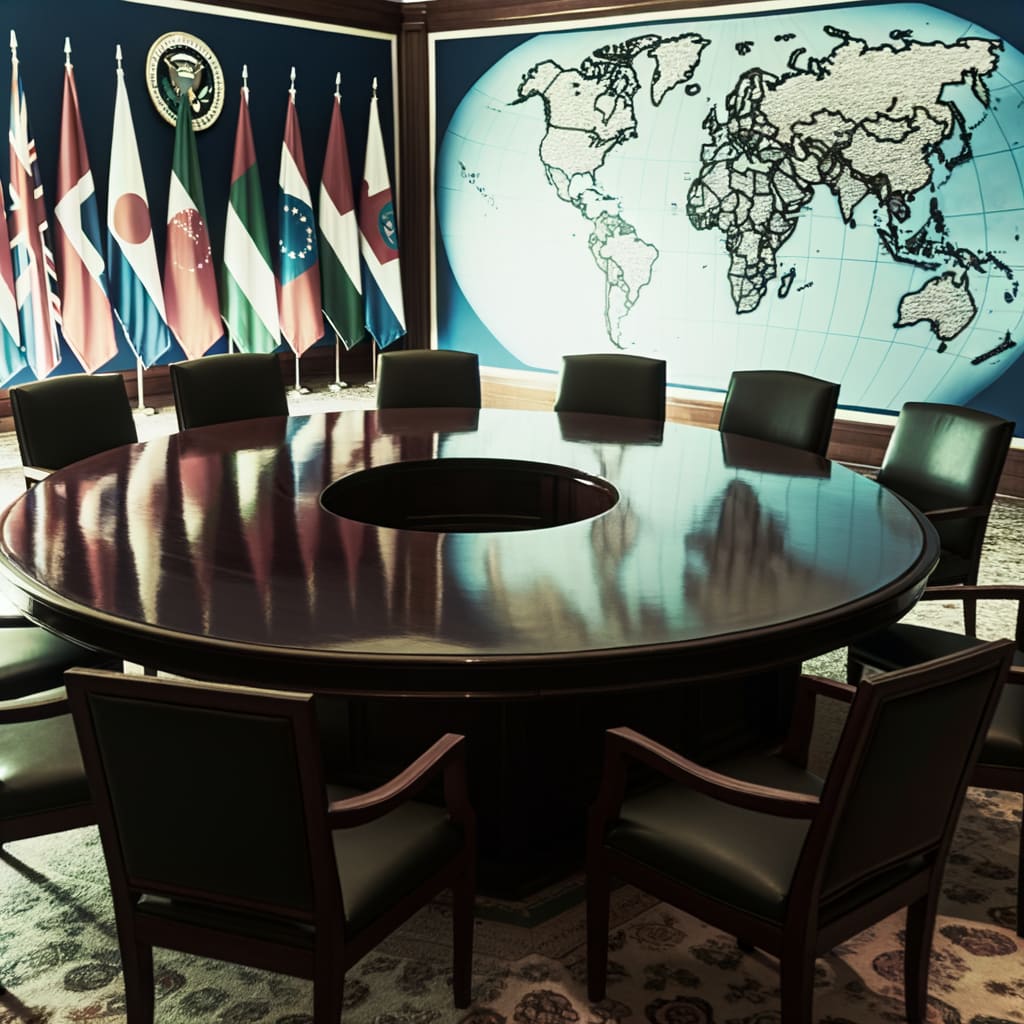EU and NATO Chiefs Stand with Ukraine Ahead of Trump-Putin Summit
In a significant lead-up to the high-stakes US-Russia summit, European Union leaders, except for Hungary's Viktor Orbán, have voiced their support for Ukraine's sovereignty and freedom to shape its future. The EU leaders have emphasized that the path to peace in Ukraine can't be determined without the involvement of Ukraine itself and that any potential changes to Ukraine's borders must not be enforced by force.
Background and Context
The EU and NATO chiefs' support for Ukraine comes as US President Donald Trump and Russian President Vladimir Putin prepare for a crucial summit in Alaska. The meeting has been set against the backdrop of ongoing conflict in Ukraine, with the EU leaders stating that meaningful negotiations can only take place in the context of a ceasefire or reduction of hostilities.
Key Developments
In a joint statement, the EU leaders, excluding Viktor Orbán, asserted that Ukraine should be able to 'choose its own destiny' and that any diplomatic solution must protect Ukraine's and Europe's vital security interests. The statement was endorsed by all EU leaders, except Hungary, which has been vocal in its opposition.
Hungary's Prime Minister Viktor Orbán, who refused to join the EU statement, argued that the EU should not issue orders or set conditions for the Russian and US presidents. Orban also promised Russia to thwart EU attempts to interfere with the Putin-Trump summit, emphasizing that Hungary was interested in the summit's success. His stance has sparked controversy, with Hungary's Foreign Minister Peter Szijjarto stating that Ukraine doesn't even belong among civilized nations.
Reactions and Implications
The EU's statement has been seen as a significant show of support for Ukraine in the face of the ongoing conflict. However, the refusal of Hungary to join the statement has raised questions about unity within the EU.
Meanwhile, on the ground in Ukraine, the country's defense forces have reported some territorial gains on its Russian border and have neutralized 36 out of 45 Russian drones.
Current Status and Upcoming Events
As the Trump-Putin summit approaches, the world is closely watching the US response to Russia's actions in Ukraine. Trump has set a deadline for Putin to agree to a Ukraine ceasefire or face US sanctions on oil exports. Talks between Trump's negotiator Steve Witkoff and Putin have taken place, with the US pushing for a peace deal, but no ceasefire agreements have been announced yet.
As the situation continues to evolve, the stance of the EU and NATO chiefs underlines the international community's concern about the conflict in Ukraine and the importance of the country's sovereignty and freedom to shape its own future. Their message is clear: the path to peace in Ukraine cannot be decided without Ukraine itself.

